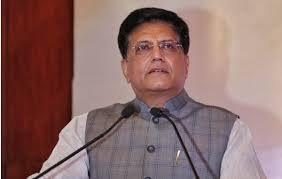Farmers’ body warns against US deal, says protests will “intensify” if concerns ignored

A major coalition of Indian farmers’ unions has issued a strong warning to the government. They oppose a proposed agricultural trade deal with the United States and say protests will grow if concerns are ignored. The All India Kisan Sangharsh Coordination Committee (AIKSCC), representing over 250 farmers’ organizations, raised alarm over the impact of such deals on India’s agriculture sector.
Farmers Fear Market Flooding and Unfair Pricing
Leaders say the agreement could increase imports of cheap, subsidized US agricultural goods. These include grains and genetically modified (GM) products. They argue such imports would harm small and marginal farmers by undercutting local prices.
“We already suffer from inflation, crop losses, and poor pricing. Any trade deal without our consent is a betrayal,” said Hannan Mollah of AIKSCC. He explained that India’s farm economy cannot match the US, which heavily subsidizes its exports.
Genetically Modified Crops Raise Alarms
The unions are especially worried about GM food imports. Groups like the Bharatiya Kisan Union (BKU) oppose them strongly. They cite health risks and threats to native biodiversity.
“If GM corn, soybean, or cotton enter India, it will ruin our farming and harm public health,” said BKU spokesperson Rakesh Tikait. He demanded that the government reveal the deal’s full details.
These concerns echo those raised during the 2020–21 farmers’ protests. Back then, farmers rallied against corporate control and feared foreign influence on agriculture policy.
Lack of Transparency Fuels Anger
The central government has yet to release any official details about the trade deal. This silence has angered farmers and activists, who demand full transparency and consultation.
“They can’t make backroom decisions on issues affecting our lives. Farmers deserve a voice in policy-making,” said Kavita Kuruganti from the Alliance for Sustainable and Holistic Agriculture (ASHA). She warned that past liberalization efforts had hurt farmers by lowering crop prices and increasing debt.
Protests Set to Expand Across India
Farmers’ groups are now planning protests outside Parliament and state assemblies. They’ve given the government a two-week deadline to engage in talks.
“If ignored, we’ll take to the streets again—just like in 2020,” warned Balbir Singh Rajewal of AIKSCC. Protests are already being planned in Punjab, Haryana, Uttar Pradesh, and Maharashtra.
The movement is also reaching out to labor unions and civil society. Their goal is to build a broader campaign against foreign influence and corporate control of essential resources.
Experts Warn of Lopsided Trade Terms
Economists support the farmers’ demand for fairness. Dr. Devinder Sharma, a food policy expert, said trade deals must benefit both sides. “If the US gets access to our markets, India should gain technology or export benefits in return.”
He warned that one-sided deals could harm local producers and worsen rural poverty.
US Push Part of Broader Strategy
The United States sees closer trade ties as part of its Indo-Pacific strategy. For years, it has pushed India to open its markets to US agricultural goods. These include subsidized products and GM foods.
Analysts note that while India may gain in defense or technology sectors, agriculture is a highly sensitive area. “The government must not trade away farmers’ interests for strategic benefits elsewhere,” said Dr. Ashok Gulati, a former chairman of the Commission for Agricultural Costs and Prices (CACP).
Call for Open, Democratic Dialogue
With tension rising, many are urging the government to engage in a transparent process. Civil society groups say the trade deal should be made public and debated in Parliament.
“The government must release the draft agreement. Let farmers and lawmakers debate it openly,” read a joint statement from multiple advocacy groups.
Conclusion
India’s agricultural sector, which supports nearly half the population, remains central to any national policy. The farmers’ warning is a reminder that major decisions cannot ignore those most affected. If the government fails to respond, it may face another wave of protests—just as it did during the farm laws movement.






